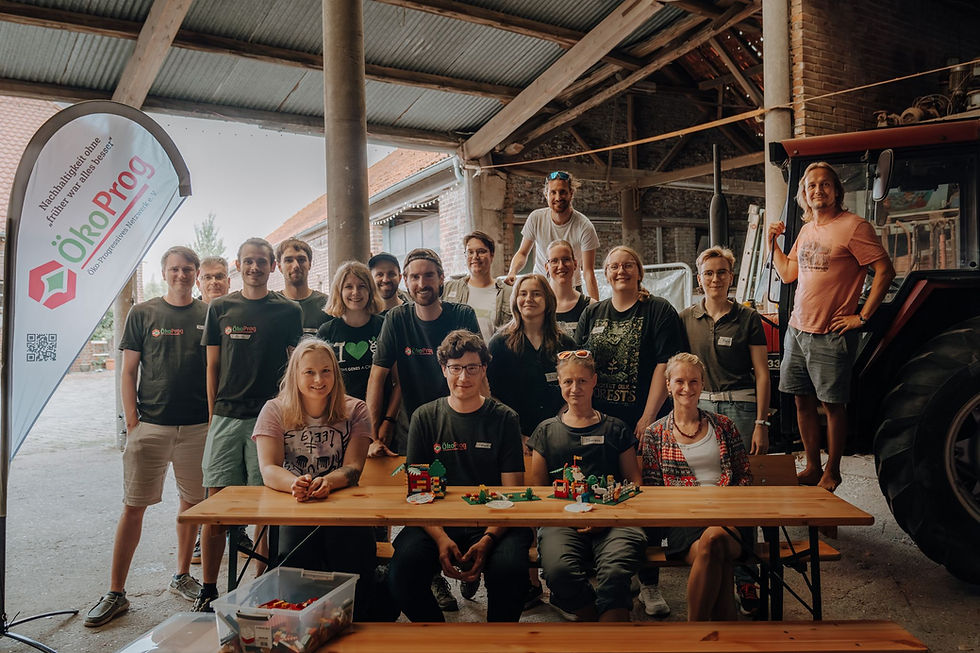Project Shares Insights at Cotswolds Biodiversity Workshop
- Taskscape Associates
- Mar 4, 2024
- 4 min read
Updated: Sep 15, 2025
Addressing Challenges for Arable Biodiversity...
On the 27th February 2024, the workshop "Challenges for Arable Biodiversity: Threats and Opportunities" was held in Stow-on-the-Wold, Cotswolds, funded by Cotswold National Landscapes through their Farming in Protected Landscapes programme.

This gathering brought together farmers, scientists, and conservation experts to tackle the pressing issues facing biodiversity in UK arable landscapes. The event provided a platform for sharing practical solutions, examining case studies, and fostering collaboration between agricultural and conservation sectors.
The workshop addressed critical challenges including the ongoing decline of farmland species despite agri-environment schemes, climate change impacts on agricultural systems, and the fragmentation of wildlife habitats. Participants explored how integrated land management approaches could support both biodiversity recovery and productive farming, with particular emphasis on the role of farmer clusters and collaborative landscape-scale initiatives.
Key Themes and Discussions
The event highlighted several urgent priorities for arable biodiversity conservation:
Declining biodiversity trends remained a central concern, with many UK arable species and habitats continuing to face pressure from modern agricultural practices and changing land use patterns. Despite existing agri-environment schemes, participants acknowledged that more innovative and flexible approaches were needed.
Climate adaptation and mitigation featured prominently in discussions, with emphasis on improving soil health, carbon sequestration, and water quality management as essential components of sustainable farming systems.
Habitat connectivity emerged as a crucial factor, with successful examples of farm clusters, grassland restoration projects, and collaborative landscape management demonstrating how ecological networks could be rebuilt across fragmented agricultural landscapes.
Knowledge gaps were identified as a significant barrier, particularly the lack of comprehensive data on priority arable species' needs and distribution, which complicates effective conservation planning.
FRAMEwork Project Contribution
Building on their participation in the Welsh biodiversity workshop the previous October, Work Package 2 'Advanced Farmer Clusters' Lead Niamh McHugh and Deputy Coordinator Alastair Simmons once again represented the H2020 FRAMEwork project, delivering a new presentation tailored to the Cotswolds context. Their contribution explored how the FRAMEwork project's innovative approaches to farmer-led conservation could address the specific challenges identified during the workshop, demonstrating the adaptability and relevance of the project's methodologies across different UK landscapes.
The presentation complemented the insights they had shared at the Restoring the Biodiversity of Arable Habitats in Wales event, showcasing how lessons learned from farmer clusters across Europe could be applied to support biodiversity recovery in the Cotswolds' distinctive arable systems.
Breaking Down Barriers Through Collaboration
A central theme emerging from the workshop, as reported by FRAMEwork Deputy Coordinator Alastair Simmons who facilitated several breakout groups, was the need to break down territorial divisions that hinder effective biodiversity conservation. Participants identified multiple stakeholder groups—from farmers and landowners to NGOs, statutory bodies, and consumers—whose siloed approaches often create barriers to unified action on arable biodiversity challenges.
The workshop generated innovative solutions to foster greater collaboration, including the establishment of management groups incorporating farmers from Farmer Clusters to strategically plan and widen involvement in biodiversity initiatives. Participants emphasized the critical role of Farmer Clusters as proven vehicles for peer learning, knowledge exchange, and testing new conservation approaches—a model central to the FRAMEwork project's methodology. The groups recommended developing more generalist advisors who can work across disciplinary boundaries, educating students for the overlaps between territories rather than narrow specializations.
Looking ahead, participants proposed using systems thinking and multi-layer GIS mapping to tell compelling stories about arable biodiversity benefits, while leveraging existing NGO and public sector networks to consistently engage Farmer Clusters. The workshop also highlighted the potential of emerging technologies, including AI and machine learning, for navigating big data to support biodiversity conservation, while cautioning about the need for the conservation sector to stay ahead of potential private sector manipulation of information. These insights reinforce the FRAMEwork project's integrated approach to supporting farmer-led biodiversity recovery across European landscapes.
Learning from Practice
The workshop featured compelling case studies from both the UK and Europe, showcasing practical interventions such as wildflower margin establishment, sustainable grazing systems, and successful farm cluster collaborations. The Cotswolds' own "Farming in Protected Landscapes" programme was highlighted as an exemplar of multi-sector partnership working, demonstrating measurable nature recovery benefits while maintaining agricultural productivity.
Participants engaged in field walks, specialist workshops, and facilitated discussion groups, enabling direct knowledge exchange between practitioners and researchers. These interactive sessions generated shared strategies for implementing habitat-led approaches and establishing long-term monitoring programmes.
Policy and Practice Integration
A recurring theme throughout the event was the need for better alignment between policy frameworks and on-farm practice. Discussions examined both the successes and limitations of current agri-environment schemes, with particular attention to ensuring continuity when schemes end and improving communication of biodiversity goals to all stakeholders.
The importance of farmer engagement emerged as crucial for lasting biodiversity gains. Participants emphasised that flexible, locally-adapted schemes supported by accessible advice networks were essential for enabling farmers to implement effective conservation measures without compromising their livelihoods.
Moving Forward
The workshop concluded with a sense of both urgency and optimism about the future of arable biodiversity in the UK. The event reinforced that reversing biodiversity decline requires continued collaboration between farmers, conservationists, researchers, and policymakers. The FRAMEwork project's contribution to these discussions demonstrates the value of international collaboration and knowledge exchange in developing innovative solutions for biodiversity recovery.
As integrated farming systems and nature recovery become increasingly central to UK agricultural policy, the strategies and partnerships developed through events like this workshop will be essential for creating resilient arable landscapes that support both wildlife and sustainable food production. The continued involvement of projects like FRAMEwork ensures that UK farmers can benefit from cutting-edge research and practical experience from across Europe, adapting successful approaches to local contexts and challenges.



